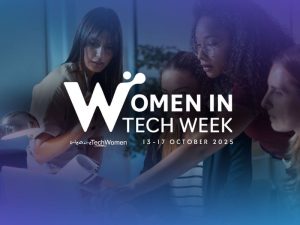
That is an incredible statistic, considering there are nearly eight million people in Britain who fall under the ‘disabled’ category, at least in some sense. It equates to a standing army of about four million who are perfectly skilled and educated, and yet are undervalued and unrecognised.
The figure is not much better in the United States, with only 60 per cent of men and 51 per cent of women with disabilities working.
Unfortunately, the answer seems largely down to negative stigmas and stereotyping — of pretty much anyone with a disability, no matter how minor it is. Managers and businesses likely avoid hiring disabled workers because they see them as either inconveniences or an unnecessary expense — or both.
That has been the traditional precedent. Thankfully, there is evidence that those negative stereotypes and stigmas are fading away. Helped in part by the growing number of business case studies that have invested in disabled talent and flourished because of it.
It is an undeniable fact that, in some instances, a disabled candidate may require certain adjustments in the workplace in order for them to function properly. But these adjustments are almost always very minor and inexpensive. A sobering thought from a hiring perspective is that these little adjustments can come between hiring just an average able-bodied candidate over an outstanding, hard-working candidate who just happens to be disabled in some way.
One success story lies in the British engineering sector (which is already suffering from a recruitment crisis and would do well to try and welcome some disabled talent). In 2016, the company Morgan Sindall Construction made the unorthodox decision to make changes to their hiring policies — in a conscious attempt to build a “culture of access”.
Four years on, the company’s HR director, Dawn Moore, said that the changes have been very successful. In a company survey, workplace recommendations increased from 50 – 95 per cent, and the employees reported more feelings of respect and inclusivity from the management. The most important win was that nearly everyone seemed to think the company valued their wellbeing, and even placed it as their number one priority.
Dawn Moore’s next priority is for the company to target ‘Leader’ status. That is, an official recognition by the British government that the company is actively building a culture of access for its workforce.
Moore’s sought after ‘Leader’ status is part of a tier of official status levels recognised by the British Government’s Disability Confident scheme. The ultimate ambition of this scheme is to encourage employers to see the value in, and employ, ordinary talented people who just happen to have a disability.
Disability Confident was launched in 2016 by the Department for Work and Pensions to much scepticism. Businesses feared that it would be simply unaffordable and overly-ambitious to radically alter their workplaces or hiring practices just for the sake of hiring an employee with a disability. It was seen as a noble scheme, but a leap in the dark for most sensible businesses.
And while affordability is very much an issue for lots of businesses, the reality is Disability Confident is looking like a quiet success. More than 17,000 companies have already enrolled on the scheme and signed up to the ‘Committed’ level (the entry-level). This first stage is essentially a pledge to reform hiring practices, making it easier to recruit more disabled workers and to hold on to them.
Once the government is satisfied that the ‘Committed’ level is a ticked box, companies then progress to ‘Employer’ status and then, finally, to ‘Leader’ status. In order to be officially recognised as a Leader, the company must demonstrate that it has made a positive influence by having hired disabled people to come and work for it.
The great thing about consciously working towards a culture of access in the world at work is that the advantages don’t just stop at disabled people. A true culture of access reaches every worker in the business.
This is because inclusivity largely depends on considering others; being more aware of their needs and mental health. It also encourages greater levels of support and sensitivity. After all, even a non-disabled employee might need minor workplace adjustments if they are experiencing changes in health, family or private life situations.
An effective culture of access explains why businesses such as Morgan Sindall experience such high growth rates in employee satisfaction, retention, and feelings of self-worth. The reduction in employee turnover is in itself significant, as it can be costly to be constantly hiring, recruiting and training, only to have employees leave after a short while.
As more businesses, CEOs and hiring managers wake up to the realisation that disabled people, like their non-disabled counterparts, are just as talented and hardworking as anyone else, the as-of-now untapped resource of four million or so workers might well prove to be a lifeline to some sectors.
One example is the aforementioned British engineering sector, which has been suffering a catastrophic free-fall in recruitment since at least 2016. With literally millions of disabled people ready to go to work, skills shortages and recruitment crises only have to be issues if, as a society, we insist on sticking with old stigmas and stereotypes.
At the time of writing, British engineering is still lagging behind other services in its uptake of the Disability Confident scheme. This sector would be wise to reform its recruitment practices and quickly, to avoid a deepening crisis.
The astonishing thing is that the key to success is strikingly simple. All businesses need to do is listen to their employees; encourage them more, and work with them to create a welcoming, inclusive environment. Equally for disabled and non-disabled workers. In such an environment, surely the only thing a business can do is thrive.
This article was written by Thomas Owens of Webster Wheelchairs, a company that supplies wheelchairs, rollators, and other disability-friendly equipment to companies and health services in the UK.
October
13/10/2025 - 17/10/2025 (All Day)(GMT+00:00)
The ground-breaking nationwide celebration of women in technology returns, featuring a week of dynamic online and
 The ground-breaking nationwide celebration of women in technology returns, featuring a week of dynamic online and in-person events. Focused on career growth, networking, and innovation, this event continues to champion equality and empower women in the tech industry.
The ground-breaking nationwide celebration of women in technology returns, featuring a week of dynamic online and in-person events. Focused on career growth, networking, and innovation, this event continues to champion equality and empower women in the tech industry.
WeAreTechWomen is proud to present the second annual UK Women in Tech Week, taking place from October 13th to 17th, once again aligning with Ada Lovelace Day. This nationwide initiative brings together a vibrant line-up of virtual and in-person events celebrating the impact of women across the tech industry.
In partnership with leading organisations and Women in Tech networks, the week will offer inspiring panels, practical workshops, and meaningful networking opportunities. Through our website, attendees can easily book their spots for these events. Our master calendar for bookings will be released in the summer. Those who have registered their interest will receive priority booking.
Despite growing awareness, the sector still faces systemic challenges. Our upcoming Lovelace Report with Oliver Wyman has highlighted a number of issues around the broken systems that hinder the progression of women in the tech industry. Several reports over the past few years, including the Lovelace Report, cite that women are leaving the industry altogether. This talent drain is not only a loss of potential but is actively costing the UK economy billions of pounds each year.
With just 20% of the UK’s tech workforce made up of women—and with government commitments to scale the AI workforce—this is not the time to slow down. It’s time to step up.
For more information visit: women-in-tech-week.com
01nov09:0016:30KIN: Know. Inspire. Navigate | A Day for Women to Realign, Renew, and Rise
01/11/2025 09:00 - 16:30(GMT+00:00)
Henley Business School, Greenlands
Henley-on-Thames, RG9 3AU
Set on the tranquil banks of the River Thames, Henley’s historic Greenlands campus offers the perfect backdrop for a day of reflection, connection, and
Designed for early to mid-career women across industries who want practical tools they can use immediately, this one-day retreat follows the Kinspace KIN framework – Know, Inspire, Navigate – guiding you to:
This is not just a feel-good day. It’s sustainable learning – you will leave with your own action and implementation plan tailored to your life, so you can apply what you’ve learned immediately and keep building momentum long after the retreat.
In the afternoon, slow down and reconnect with your senses in a mindful pressed flower card crafting, writing to self and picture workshop. We’ll ask a few questions ahead of time so we can pair you by goals and stage, and tailor examples to your context. Then, step outdoors for a unique partner reflection in nature – partnering with both the landscape and each other to inspire deeper insight and grounded action.
To help you stay accountable and supported, you’ll have the option to join three monthly follow-up group sessions (at a separate price) designed to check in on your progress, troubleshoot challenges, and keep you moving towards your goals.
This is a confidential and supportive space with limited seats to ensure meaningful connection and participation.
Date: Saturday 1 November 2025
Time: 9:00 AM -4:30 PMT
Location: Henley Business School, Greenlands Henley-on-Thames
RG9 3AU
Price: £250 – Early Bird £200 until 10 September
